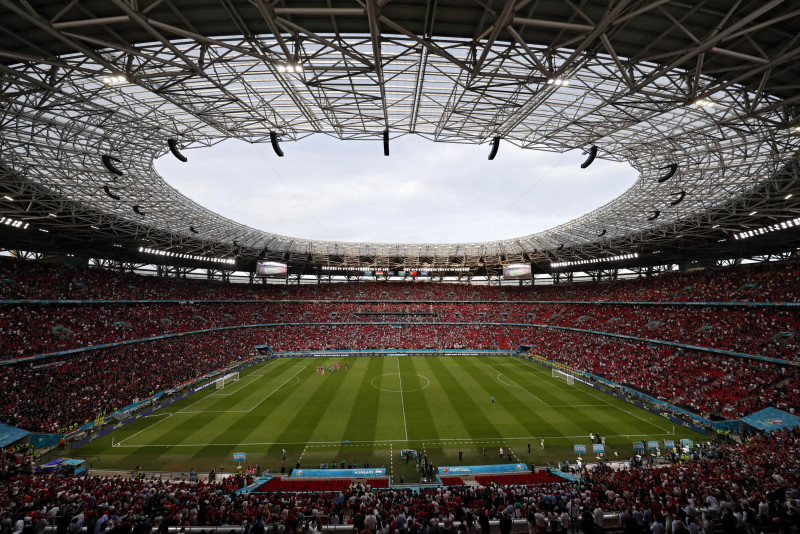THE curtains are coming down on yet another Euro Championships as Italy and England battle it out at Wembley on Monday morning.
This year’s tournament is in fact Euro 2020 - brought forward due to the Covid-19 pandemic that crippled most of Europe last year and continues to devastate the world today.
Played across 11 cities, we have seen on our television screens the glee of fans being able to enjoy the games live after a year of being played in empty arenas.
From Holland to Hungary, Scotland to Spain and Romania to Russia, the fans returned in trickles and droves, giving the world the opportunity to assess how successful these host nations have been in tackling the pandemic.
On the flip side, it also gives us an understanding that with strict SOPs in place, despite lower infection numbers, are also the reason why some countries are on the road to full recovery.
The Johan Cruyff Stadium in Amsterdam for instance has a capacity of 56,000 but only 12,000 were allowed in as the country still charts high statistics of 66 infections per 100 people.
Meanwhile in Romania while the number of infections have declined, authorities are not throwing caution to the wind and have only allowed 13,000 fans into the 54,000 capacity National Arena in Bucharest.
Hungary on the other hand was the first country in Europe to declare zero infections and this is best illustrated by the full capacity crowd at the 61,000 seat Puskas Arena in Budapest.
Meanwhile the Brits are reactive to public reaction especially when it involves something as passionately British as the “English Game” and pints. Pubs have reopened although England is not out of the woods yet where both Covid-19 and the tournament are concerned.
The flip-flopping is evident from the earlier cap of just 22,500 fans at Wembley. However, in the semi-finals 60,000 fans witnessed England beat Denmark; and tomorrow there will be a full capacity 90,000 people waiting to see if England can defeat Italy and carry the Henri Delaunay Trophy.
Judging from the scenes in the arena and the streets after every win (the Three Lions have had an undefeated path to the finals); one fears that there will be a “Wembley Cluster” which could extend to the rest of the city of London if England finally does bring it home.
But as the saying goes, the fans make the game. There was something dull in even the most exciting matches in the EPL. The empty seats a reminder of the desolation of the pandemic and the recorded audience cheers, monotonous and artificial as they may be, a sad reminder of how things used to be not too long ago.
Which is why a sporting occasion however small like a takraw tourney in your balai raya or an event as large as Euro 2020 is a sign of hope that everything’s not lost and life as we know it is fighting back as feverishly as Germany did when it beat defending champs Portugal in the knock-outs.
I was fortunate to have been able to attend two Euro championship games - the semi-final between Spain and Russia at Euro 2008 in Vienna, when Austria and Switzerland were co-hosts. Eventual tournament champions Spain beat Russia 3-0.
I had the opportunity to watch Spain progress to defend their title in 2012 when they beat Portugal on penalties in Donestk, Ukraine. This was when the former Soviet block and Poland played hosts.
Pitch side seats, beers and banter with friends and strangers alike - the perfect combo for a dream game experience.
The numerous fan zones across the cities and just outside the arenas are a deliberate addition featuring a carnival-like atmosphere where one watches the games on mega jumbotron screens while patronising various F&B stalls and engaging in street football or street brawls, depending on the preference of intoxicated fans.
With social distancing rules at play, meet-and-greets and signing events with players - the oft side-events that occur during these tournaments - put a blanket on the brand of these stars themselves.
While this may be hard to quantify, the pandemic has caused havoc to the spill-over economy where brisk trade in merchandising, F&B, hospitality and tourism bring in millions over the month of the tournament.
The estimated economic loss of the scaled down Euro 2020 is a whopping Euro 2 billion (RM9.9 billion) to these 11 cities; while UEFA lost Euro 400 million (RM1.9 billion) in fees and administration costs.
But the social cost could be more devastating. The UK reports increased cases of depression and mental health issues as for some sports is their only social contact.
Premier League clubs have even launched help-lines and enhanced social media communities so fans have an outlet to discuss matches and keep in touch with each other.
In this vein, Euro 2020 as scaled down as it may be, is a much welcomed and needed symbol of a pandemic that is coming under control.
Football after all is life! - The Vibes. July 10, 2021
Terence is Editor in Chief of PETRA News









_flanked_by_wong_(right)_and_haryany_(left)_at_the_museum.jpeg)






